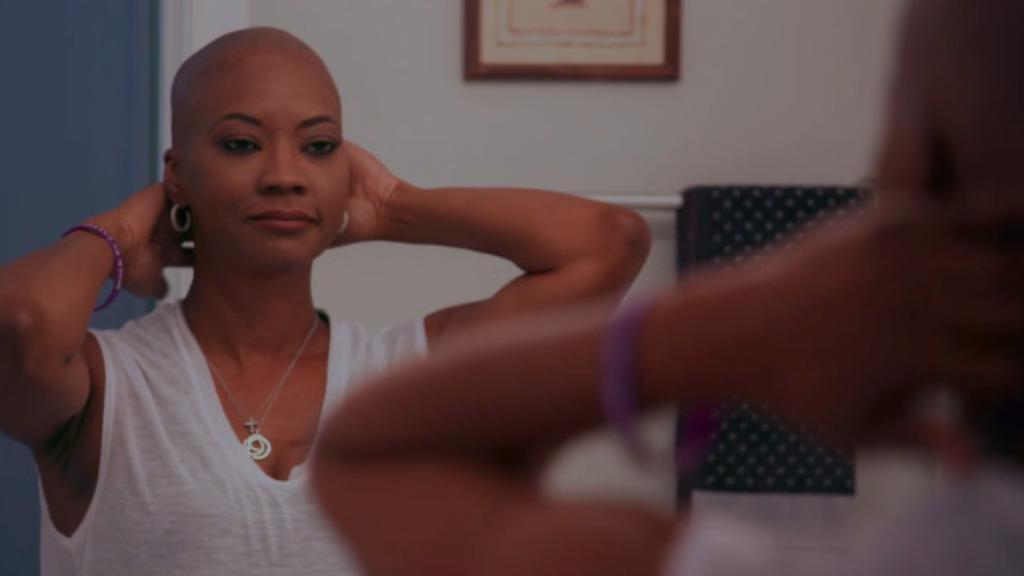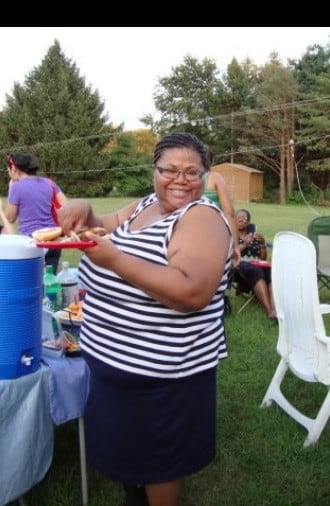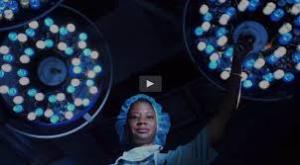
Dr. Lori Wilson is discovering what it’s like for her cancer patients. (Photo: Howard University Hospital)
From the age of seven, Lori Wilson knew that she wanted to be a surgeon. While other kids were reading Dr. Seuss, Wilson was fascinated by an anatomy section inside an encyclopedia in her house.
“I remember when I was little, I would watch ‘MASH,’ which was a show about surgeons,” Wilson said. “I wanted to be like Hawkeye, who was the guy surgeon who saved people and was good at what he did.”
When she was in the 10th grade, Wilson was selected to participate in a summer program that focused on cancer research. She decided then that she wanted to be a cancer surgeon.
And today she is Dr. Lori Wilson, division chief of surgical oncology, which focuses on breast cancer, as well as the program director of the general surgery residency at Howard University Hospital, where she completed her residency years ago.
Like millions of Americans, she is also a cancer patient, struggling to beat the dreaded disease.
Wilson, 46, wife, mother and medical specialist, and her struggle are now part of a Ken Burns documentary, Cancer: The Emperor of All Maladies, which premieres tonight on public television. She allowed cameras to film in surgery as she underwent a double mastectomy.
Aside from treating hundreds of cancer patients, she also saw both of her parents go through the disease. Her father was in the Air Force, and her mother was a stay-at-home mom, said Wilson, who grew up in a middle-class, black neighborhood in southern Virginia.
Although cancer is not foreign to Wilson, she never completely understood what it was like to be in the patient’s shoes until she was diagnosed with breast cancer in 2013.
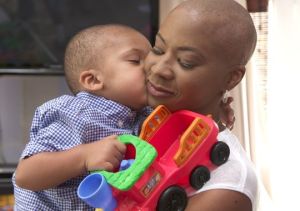
When her son was a year and a half, Dr. Lori Wilson was diagnosed with breast cancer. (Photo: Robert Hanna)
“I had my son and breastfed for about a year,” she said. “Since I was over 40, the recommendations were to wait three to four months for my breasts to go down. It had been about four months, and I realized that one of my breasts didn’t go down to the size that I expected. So, I ended up getting a mammogram and an ultrasound and was diagnosed when my son was a year and a half.”
Wilson said she went to church that Sunday, and the message was about being in the fight of your life and needing to ask for help instead of trying to take everything on alone. From that moment, she decided that she would be completely open with everyone in her life about her diagnosis.
“My mom taught me the importance of letting people who are close to you care for you,” she said. “I wanted to be a patient, not a physician sort of managing my own care,” Wilson said. “That meant letting everyone know, because this is something that doesn’t just affect me. It took a lot of pressure off and gave me the ability to go through treatment without worrying if anyone would find out.”
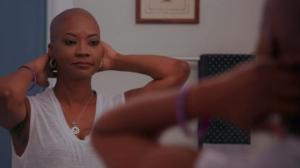
“This is something that doesn’t just affect me,” says Dr. Lori Wilson, a wife, mother and cancer surgeon at Howard University Hospital. (Photo: PBS)
Wilson said it was important to use her experience to educate and help others.
“At Howard, we talk a lot about legacy,” she said. “For me, part of that is making sure that your life has purpose. It was important for me because a lot of my patients look like me. We wanted people to see the bigger picture, the humanity, the care and how people just step up. It’s those quiet moments of humanity that are really special.”
Through her diagnosis, Wilson’s husband, whom she met in medical school, has been her greatest support system, she said. Her diagnosis has brought her family closer together and allowed them to share on a more intimate level, she said. Wilson also receives support from her church family and her Howard family.
“It is important to have a network of support, and I could not have gone through it better at any place,” Wilson said. “I want for us to have the best possible experience no matter what happens.”
Shannen Hill is a reporter for the Howard University News Service.
Cancer — Up Close and Personal
To get more of a glimpse into Dr. Lori Wilson’s life, you can catch her in Cancer: The Emperor of Maladies, which airs this week on PBS at 9 p.m. Monday, Tuesday and Wednesday. For more listings, visit www.pbs.org.

